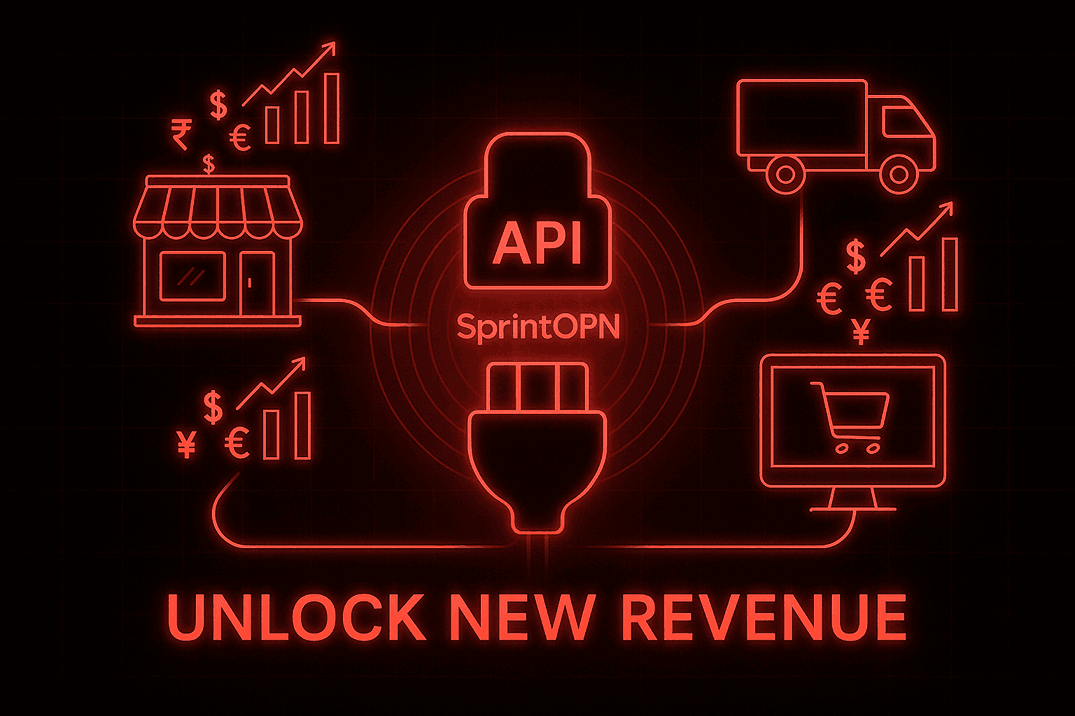Fintech APIs empower
institutions to meet growing consumer demands for seamless, efficient, and
personalized financial services through innovative digital solutions.
But what exactly are Fintech APIs, and why are they revolutionizing the
financial landscape? This article will explore the definition of Fintech APIs,
how they function, their benefits, and examples of their application in the
industry.
Table of Contents
1.
What are Fintech APIs?
2.
The Role of Fintech APIs
3.
How Fintech APIs Work
4.
Benefits of Fintech APIs
5.
Real-World Examples of Fintech APIs
6.
How They Are Changing Business Startups
7.
Future of Fintech APIs
8.
Conclusion
9.
FAQs
What Are Fintech APIs?
Fintech (Financial Technology) API, an API (Application
Programming Interface), is a set of protocols that allows different software
applications to communicate with each other. In the fintech realm, APIs
enable various financial services and applications to share data,
functionality, and services.
The Role of Fintech APIs
Fintech APIs serve as the backbone for service integration
among various stakeholders, including:
1.
Banks: Traditional
institutions leverage APIs to offer their services to third-party applications.
Learn more about API banking
here.
2.
Fintech Startups: Smaller
companies utilize APIs to build innovative solutions without developing their
entire technology stack from scratch.
3.
Consumers: Individuals
benefit from simplified, customized experiences, accessing a wide
range of services from multiple providers with ease.
How Fintech APIs Work
Understanding how Fintech APIs function can help demystify
their value. Essentially, APIs work by providing a standardized way for
applications to request and exchange information.
Workflow of Fintech APIs
1.
Request: A
financial application sends a request to the API, asking for specific
information (e.g., transaction data).
2.
Processing: The
API processes the request, fetching data from the source (like a bank's
database).
3.
Response: The
API sends the requested data back to the application, delivering it in a usable
format (often JSON or XML).
This streamlined process enables a high degree of
interoperability and fosters collaboration between financial
institutions and technology companies.
Benefits of Fintech APIs
The rise of Fintech APIs brings a multitude of benefits to
various parties involved in the financial ecosystem.
Advantages for Financial Institutions
1.
Enhanced Efficiency: APIs
allow banks to offer their services through multiple integration points, enhancing
operational efficiency.
2.
Cost-Effectiveness: By
simplifying development processes, institutions can reduce both time and
costs associated with rolling out new services.
3. Innovation Opportunities: Collaboration with fintech companies fosters innovation, allowing traditional banks to keep pace with evolving consumer demands.
Advantages for Consumers
1.
Seamless Experiences: Consumers
enjoy the ability to access various services from different providers without
the need to navigate multiple platforms.
2.
Personalization: Financial
services can be tailored to individual needs, offering personalized
recommendations based on user data.
3.
Increased Security: APIs
often come with robust authentication methods, ensuring that user data
remains secure.
Real-World Examples of Fintech APIs
Several prominent examples showcase how Fintech APIs have
transformed financial services.
1.
Plaid
Plaid is a well-known financial technology company that acts as a bridge
between consumer bank accounts and fintech applications. By using Plaid’s API,
developers can quickly access users' banking data to provide services like
budgeting tools, payment processing, and investment tracking.
2.
Stripe
Stripe revolutionized online payment processing by providing APIs that allow
businesses to easily accept and manage online payments. This led to a
significant reduction in time and effort required for businesses to build
payment solutions from the ground up.
3.
Open Banking
Open
Banking mandates banks to provide APIs that third-party developers can
access to build new applications and services. This initiative not only
increases competition but also empowers consumers with greater control over
their financial data.
How They Are Changing Business Startups
1.
Faster Market Entry
With Fintech APIs, startups no longer need to build banking systems from
scratch. These APIs offer plug-and-play solutions for payments, KYC,
lending, and more, accelerating product development.
2.
Cost-Efficiency
By leveraging Fintech API integrations, startups can avoid heavy infrastructure
investments and reduce operational and compliance costs.
3.
Improved Customer Experience
Fintech APIs power real-time features like instant payments,
account data access, and seamless onboarding, enhancing user experience
and boosting customer trust.
4.
Greater Innovation
Fintech APIs enable embedded finance, pay-later options, digital wallets
like PPI
Wallets, and more, giving startups the flexibility to innovate and
differentiate in competitive markets.
5.
Simplified Regulatory Compliance
Using RegTech-focused Fintech APIs, startups can handle KYC, AML checks, and
audit processes efficiently, helping them stay compliant from day one.
Future of Fintech APIs
As the financial landscape continues to evolve, the role of
Fintech APIs is expected to grow even further. Here are some trends to watch:
1.
Increased Adoption of Open Banking
With more countries adopting open banking regulations, the pool of available
APIs will expand, giving consumers more options and fostering innovation.
2.
Emphasis on Advanced Security Protocols
As reliance on APIs increases, so will the focus on security. Enhanced
security measures, including two-factor authentication and encryption, will be
vital in protecting sensitive financial information.
3.
AI and Machine Learning Integration
Future Fintech APIs may leverage AI and machine learning technologies to
provide predictive analytics, risk assessment, and personalized financial
advice, further elevating consumer experiences.
Conclusion: Fintech API
Fintech APIs are not just a passing trend; they
represent a significant shift in how financial services are delivered and
consumed. By facilitating seamless connections between technology and
finance, these APIs empower institutions and consumers alike, driving
innovation and efficiency.
Frequently Asked Questions (FAQs)
Q1. What is an API in financial services?
In the financial services industry, an API (Application
Programming Interface) is a collection of tools and protocols that enable safe
and effective data sharing and communication between various software systems,
including banks, payment gateways, and fintech apps.
Q2. What is an example of
fintech?
Well-known examples of fintech companies include PayPal and
Square for digital payments, Robinhood for investment and trading, Stripe for
online payment processing, and Chime for digital banking.
Q3. What is fintech in finance?
Financial technology, or fintech, is the term used to
describe the use of technology to provide financial services and products,
frequently to boost creativity, accessibility, and efficiency. From online
banking and mobile payments to blockchain and AI in finance, it covers
a broad spectrum of uses.
Q4. Is KYC a fintech?
Because it verifies a customer's validity and establishes
if they are from a reliable source or organization, KYC is important for
financial transactions in fintech companies. This function aids in the
prevention of money laundering in the financing of terrorism and other dubious
financial crimes.
Q5. How do APIs for fintech operate?
Financial institutions can make their data accessible using
FinTech APIs without disclosing the inner workings of their systems. The
ability of their third-party applications to take advantage of the financial
institution's current security and compliance standards is advantageous to
subscribers.
Ready to Protect Your Core Systems?
Join enterprises that trust SprintEX-Code to safeguard their mission-critical software. Get started with a consultation to discuss your specific escrow requirements.




